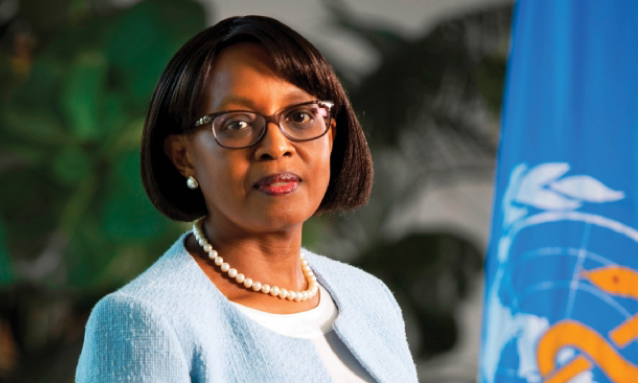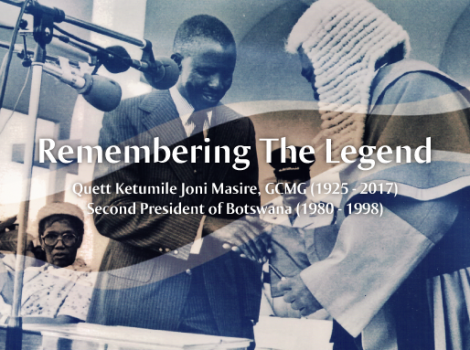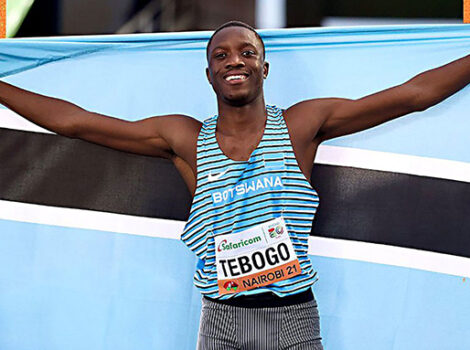
Four years ago, Dr Matshidiso Moeti smashed the glass ceiling when she became the first woman to lead the World Health Organisation’s Regional Office for Africa. Her appointment as the continent’s most senior public health official hit the headlines – and not just because of the then 60-year-old’s gender.
At the time, the west African Ebola outbreak was in full swing, and so too was criticism of WHO Africa’s response. A slow reaction to the epidemic – which went on to kill more than 11,000 people – was seen as characteristic of an inefficient organisation which had an overly cosy relationship with politicians. But Dr Moeti, a well-respected public health veteran with experience in three UN agencies, was heralded as a competent leader capable of overhauling the office. Her appointment was welcomed with optimism.
Four years later, as she sits down with The Telegraph at the Africa Health Forum in Cape Verde, the warm, thoughtful leader is clearly proud of the reforms she has instigated.
“One of the big successes that I personally feel I’ve had is to stop hearing complaints about the African region when I sit in the executive board in Geneva,” she says.
“It’s a silly detail, but I think it’s very much linked to the management improvement.”
And Dr Moeti says the organisation has learned from the chaotic initial response to the 2014 Ebola outbreak. At the time, the team working on outbreaks and public health emergencies was small – “probably not even eight people”. A number that seems tiny compared to Africa’s 1.2 billion population.
Since then, WHO Africa has hired some 80 additional experts and established two sub-regional offices outside the organisation’s headquarters in Brazzaville, Congo.
“I’ve observed a sea-change in the effectiveness of the work that we are doing. We manage over 100 public health events a year, and through the reform of our programme… we’ve been able to close off and stop most of the outbreaks in a shorter time than was happening in the past,” she adds.
But there are concerns that the current Ebola outbreak in Democratic Republic of Congo, which is now entering its ninth month, is escalating. As of Monday, there have been 1,264 cases, including 814 deaths – with more than 230 of these infections reported within the last three weeks.
Community mistrust remains high, but Dr Moeti says that local people must be at the centre of efforts to control the disease.
“One of the biggest lessons that we learned in west Africa, which is very important for the ongoing outbreak, is to engage with people. Really engage with communities and link them up with those who are responding.”
But responding to outbreaks is a small part of the WHO’s work and Dr Moeti is focused on the biggest challenge facing the continent: achieving universal healthcare coverage, a key element of the UN Sustainable Development Goals (SDGs). That challenge was the theme of this year’s Africa Health Forum – an event Dr Moeti’s office created two years ago to bring together health ministers and experts from across the continent.
The key message the director wants them to take home is the economic argument for investing in healthcare – each year, Africa loses $2.4 trillion in GDP due to disease. But in terms of reaching universal healthcare coverage, Dr Moeti avoids asserting that the aim will be fully realised across the continent by 2030, as set out in the SDGs. Instead she highlights a political shift which has put health at the centre of the development agenda.
“I am quite confident that we will start to see a move towards universal health coverage, and I think some countries will achieve it,” she says.
Dr Moeti is a passionate advocate for public health, but her ascent to the top of her field was not the career she imagined as a young doctor working in her home country, Botswana.
“Public health, it was definitely a second option,” she says. “I worked a lot with children, and I loved it. I wanted to train to be a paediatrician.”
Her hopes were grounded by reality – a reality similar to that women across the world face when balancing motherhood and work. Botswana at the time did not have a medical school, so Dr Moeti faced moving away for four years to train. With a young daughter, this did not seem feasible.
“So I trained in public health, because I already had an interest in it. I’d worked in a district in Botswana and both my parents worked in public health, so it was natural.
“But it was not what I had meant to do with my career in the future, and that was directly to do with the fact that I was a mother and had a small child.”
That’s not to say the path she chose was devoid of sacrifices. Dr Moeti continues to struggle to navigate the work-life balance – “my daughters are grown up now, but I’m reduced to WhatsApp messaging and a weekly phone call” – and fears similar challenges limit women rising through the ranks.
According to a recent Lancet study, 75 to 80 per cent of health workers are women worldwide, yet only a handful hold health leadership positions.
“The work-life balance shouldn’t be a personal struggle for individual women,” says Dr Moeti.
“There are qualified women out there who do not apply for positions, I’m quite confident there are, we just have to find them and encourage them.”
“But we also need to make it easier for women to take up these positions and to operate within a system once they’re employed,” she adds. “It’s something I am strongly working on.”
for the complete article: http://www.telegraph.co.uk/global-health/women-and-girls/breaking-glass-ceiling-woman-looking-health-billion-africans/



